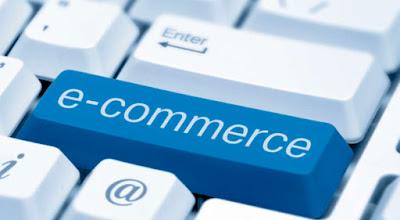Read more
Pakistan's booming eco-commerce industry is set to grow even further in the next few years, with many people now preferring to buy environmentally friendly products. The sector has already generated $1.5 billion in revenue and is predicted to reach $5 billion by 2025. This growth is being driven by some factors, including increasing awareness of the importance of sustainable living, and a growing population that is increasingly looking to buy ethical products. It is also home to an abundance of natural resources, including fertile soil and a plentiful water supply. This has made Pakistan an ideal location for the development of the eco-commerce industry.
The eco-commerce industry is booming in Pakistan. This is due to the country's abundant natural resources and its large population. There are many online retailers based in Pakistan, and the sector is growing rapidly.
E-commerce: The industry is fuelled by the growth of e-commerce
The majority of people in Pakistan do not have access to the internet. Even Nevertheless, the e-commerce sector is expanding quickly. The rise of online businesses and the number of people with access to the internet are what is driving the growth of e-commerce.
E-commerce is projected to grow at a rate of 25 percent per year. This growth is being driven by the increase in the number of people who have access to the internet and by the growth of online businesses. Pakistan has a population of over 190 million people, and only 32 percent of them are connected to the internet. However, this percentage is growing rapidly, and it is estimated that more than 50 percent of Pakistan's population will be connected to the internet by 2020.
The growth of e-commerce in Pakistan is also being driven by the growth of online businesses.
Green initiatives: Pakistani consumers are increasingly aware of the need to adopt green initiatives
E-commerce is rapidly growing in Pakistan, with an annual growth rate of 34 percent, and is expected to reach $13.5 billion by 2021.
Pakistani consumers are increasingly aware of the need to adopt green initiatives, and the eco-commerce industry caters to this demand.
Many online businesses in Pakistan are committed to sustainable practices, such as using recycled materials, minimizing waste, and providing environmentally friendly products.
Pakistani consumers can purchase green products from a variety of online stores, including cloth diapers and menstrual cups to solar panels and energy-efficient light bulbs.
Social media: As social media usage increases, so does the industry
Pakistan’s e-commerce industry is growing at a brisk pace, and this growth is being fueled by the increasing use of social media. Social media sites like Facebook, Twitter, and Instagram are now widely used by Pakistanis to purchase and sell goods and services. This has given rise to a new generation of online entrepreneurs who are using these platforms to build their businesses.
Social media is also helpful for entrepreneurs. In the past, it was difficult for small businesses to establish a presence online because it required expensive web development and marketing campaigns. But with the advent of social media, businesses can reach a large number of people at a fraction of the cost. Additionally, social media gives businesses a direct line of communication with their clients, which fosters client loyalty.
Challenges: Despite the impressive growth rate
The eco-commerce industry in Pakistan faces several challenges. However, the eco-commerce industry in Pakistan faces several challenges.
Poor infrastructure is a major obstacle to the growth of eco-commerce in Pakistan. There is a lack of reliable electricity and internet connectivity, which hampers online shopping and business operations. Moreover, there is also a lack of adequate transport infrastructure, which makes it difficult to move goods between cities and regions.
Another challenge facing the eco-commerce industry in Pakistan is rampant counterfeiting. Many products available online are counterfeit, which undermines consumer trust in e-commerce platforms and businesses. In addition, counterfeit products often do not meet environmental or safety standards, posing a risk to consumers’ health and safety.
Conclusion
In conclusion, it is evident that the eco-commerce industry in Pakistan is growing rapidly and has a lot of potentials. Many entrepreneurs are taking advantage of this industry and are doing well. However, certain issues have yet to be resolved. For example, the lack of awareness about eco-friendly products and services is a major hurdle. Furthermore, the infrastructure for eco-commerce needs to be improved.
This industry can play a major role in alleviating environmental problems in Pakistan.











0 Reviews